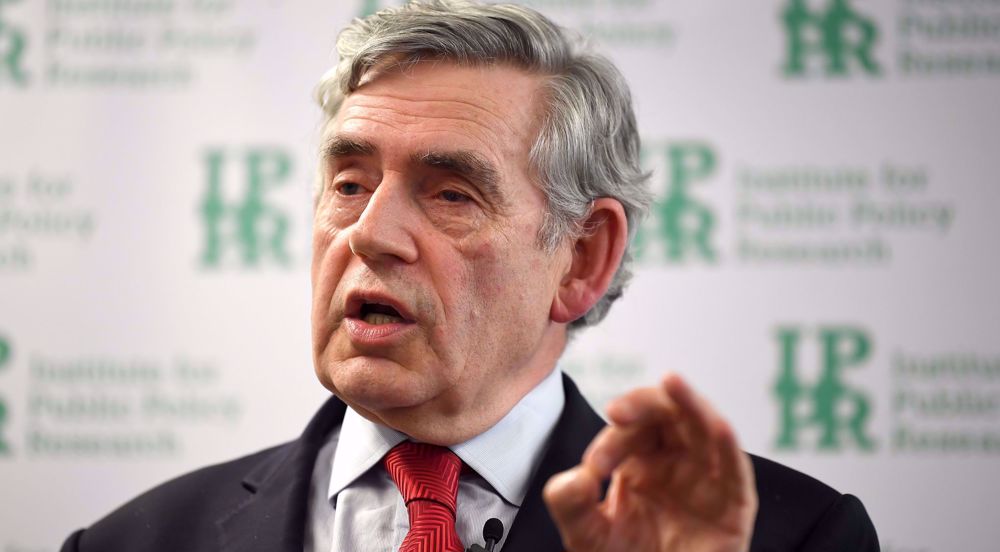
Former British prime minister Gordon Brown (File photo)
Former British prime minister Gordon Brown has called for new government financial support for households amid rising energy bills, warning nearly a million more households would be in fuel poverty this winter.
Brown said that a “double whammy” of energy price increases and benefit cuts are badly affecting poor families, calling the recent announcement of a new £500m hardship fund a cynical ministerial ploy.
Brown, who made the benefit system more generous when he served as chancellor of the exchequer from 1997 to 2007, urged his Conservative successor, Rishi Sunak, to abandon a £20 cut to universal credit set to happen this week.
He cited research by two York university academics, Prof. Jonathan Bradshaw and Dr. Antonia Keung, saying hundreds of thousands of families might be unable to pay their energy bills in the months to come, or only be able to do so through going short of food.
According to research by The York University, there are presently just over 2.5m households facing fuel poverty, with over 10% of net income being spent on energy bills.
The number of households in fuel poverty would increase to just under 3.5m, predicted the study based on an estimate of a cumulative 15% rise in gas and electricity bills over the next year.
“These figures show poor families face the worst winter for decades. Having taken away £6bn and handed back only £500m with the new fund, they are offering to replace the £20-a-week cut with £1.66, knowing that it is wiped out immediately twice over by the fuel bills rise,” Brown said.
A higher energy bills cap came into effect from 1 October, with around 15m households seeing an increase of 12% in energy bills. Those on standard tariffs, with typical household levels of energy use, could face a £139 rise – from £1,138 to £1,277 a year while households with larger than average energy use could pay over £1,277 a year.
Brown went on to say that reducing universal credit to its pre-pandemic level was “immoral” at a time when families are under pressure due to prohibitively high costs of living.
“I am surprised to see how bad the figures are. They show how many people are living on the edge. 2021 is the worst time to be poor in Britain. Food prices are rising, fuel prices are rising and benefits are being cut.”



